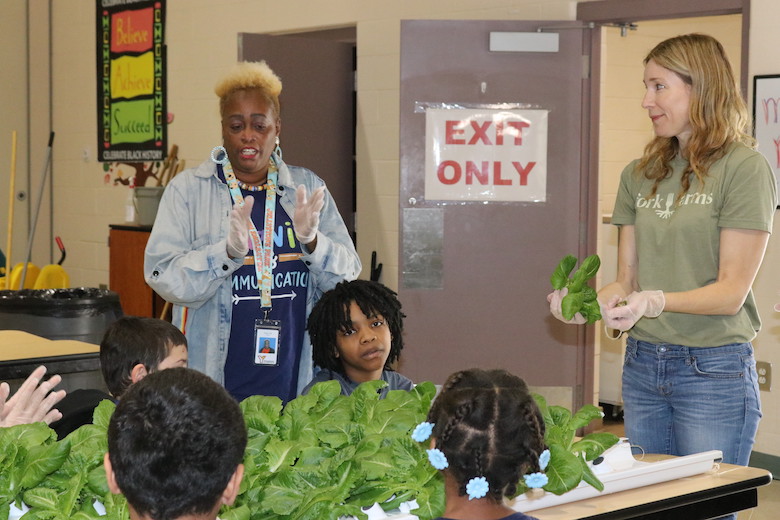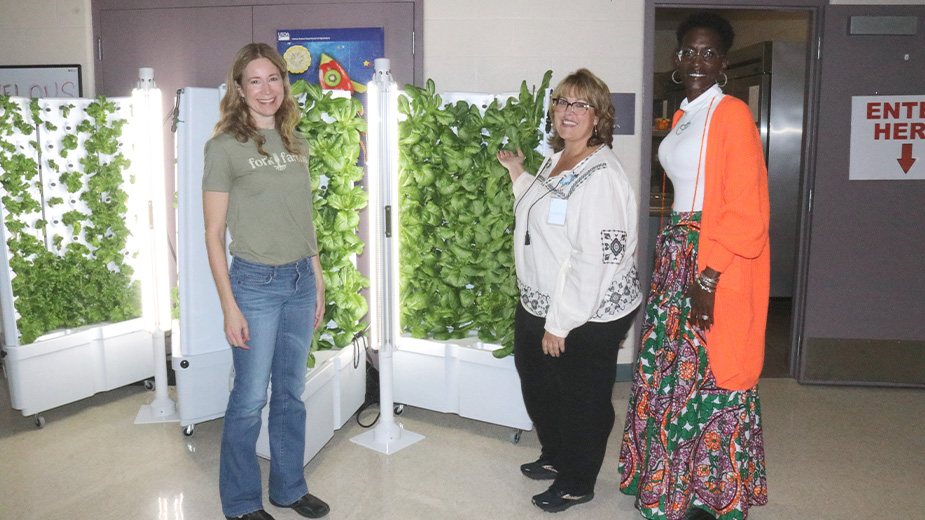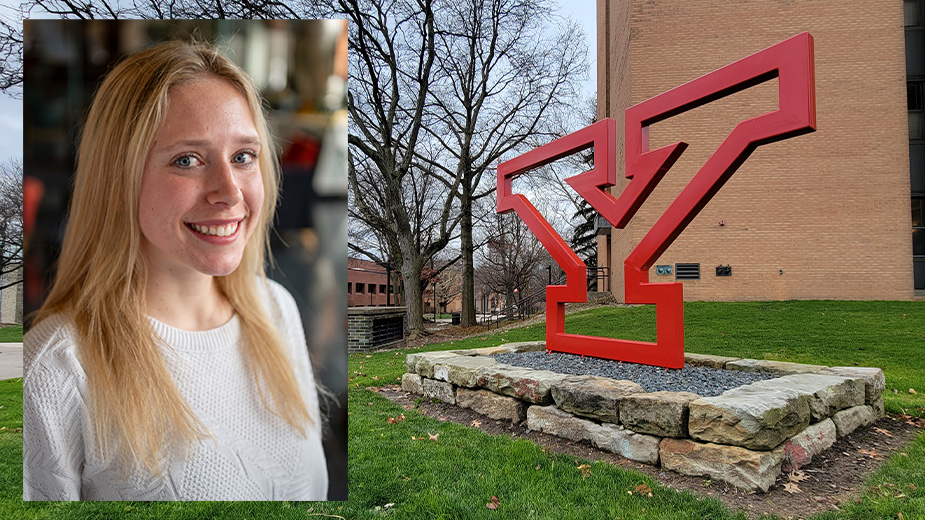Youngstown Students Harvest Hydroponic Lettuce
YOUNGSTOWN, Ohio – For more than a month, two types of lettuce have been growing in hydroponic flex farms at the end of the Martin Luther King Jr. Elementary School cafeteria.
On Monday, students got a chance to harvest and taste the veggies of their labor.
Anne Rogerson, director of partnership development at Fork Farms, demonstrated for students how to gently lift each head of romaine lettuce from the pod where it has been growing and remove the long root system that has been supplying it with water and nutrients. The students harvested the lettuce themselves.
“They felt proud,” said Sharon King, an autism and special needs teacher at the school. “They understood that they were growing food for the lunch community. They took pride in that. They were very diligent in checking PH balance, nutrients needed, water levels. And they had planted the seeds, so they were in it to win it, and they won.”
On Tuesday, fresh salads will be served for lunch from the lettuce the students grew and harvested.
Tascin Brooks, food service director for Youngstown City Schools, said there are 21 hydroponic farms in the school district, which allows the students to grow food year-round. In just one farm machine, students can grow up to 144 heads of lettuce or a variety of other edible plants such as cucumbers, basil or other herbs. With two in each school, the crops can be rotated to allow there to be a fresh crop available all of the time.
“We like to put it in the cafeteria so that all the students can benefit from it instead of just one or two classrooms,” Brooks said.
Bridget Lambright Tommelleo, K-12 STEAM supervisor for Youngstown City Schools, said the funding for the program came from a $95,000 Patrick Leahy Farm to School USDA grant, with the district one of the few selected. The district was able to purchase 18 of the hydroponic flex farms with that money. The schools obtained three others, including two through the William Swanston Charitable Fund and Community Foundation of the Mahoning Valley.
Teachers chosen for having an interest in the program are focusing lessons on not just how to grow, but the work of food technologists, who specialize in things like sustainability and more efficient harvests. Lambright Tommelleo said through this program, students learn about responsibility and college and career readiness skills, while participating in a unique experience that makes them excited about coming to school and learning.
“When it is great for kids, STEAM is all in,” Lambright Tommelleo said.
To Brooks, the program is not just giving students a chance to sample fresh vegetables in their lunchrooms. It’s also teaching them about what makes things grow and not grow, and the life skill of learning both from success and failure.
Now that the first harvest is complete, students will get a chance to experiment with growing other vegetables. Some schools will taste test the differences between their fresh produce and store-bought varieties.
“The world is evolving, and I think it is really important to teach them that you don’t need that little patch of land to grow. There are alternates, so if you’re stuck in an apartment or someplace where you can’t get out and dig in the dirt, you still can have fresh vegetables and garden things to eat that are nutritious,” Brooks said, adding this can help fight the obesity pandemic and be a skill they can pass on to relatives and friends.

Some of Youngstown’s schools are using what they grew to host a family dinner.
Rogerson said the students have called the hydroponic machines at the end of their cafeteria alien pods. But even adults and parents entering the school are impressed by the hydroponic flex farms and excited to see the outcome, Brooks said.
Wisconsin-based Fork Farms created the technology, which allows schools to use water, nutrients and energy-efficient LED light to grow about 25 pounds of food every four weeks. Fork Farms trains and supports the teachers, providing them with materials and resources.
Youngstown City Schools has the largest hydroponic flex farming program in the state, Rogerson said, adding there is even a website so Youngstown educators can be a resource for each other.
“It seems like such a simple thing, growing food,” Rogerson said, adding she grew up on a family farm where she regularly ate fresh food grown in the fields and in a garden. “I moved to cities and saw that is not normal. Most kids don’t have this experience, and many kids do not have access to this quality of food with the nutrients being intact.”
She talks about the empowerment students feel when they realize they can contribute to growing food themselves, and she loves seeing them taste the food, which has so much more flavor when it is picked fresh.
“When you see a kid growing their own food from seed to plate, and they see it on the plate or see it coming through the lunch line and their friends are eating it, and they can point to it and say, ‘I grew that’ – that’s something they will always remember,” Rogerson said.
Rogerson said learning to grow food in this soilless way can lead to a series of positive changes in the life of a child, including the love of healthful cooking and eating, exploring how to garden in soil and learning to care for others in their community.
It also could lead to a career down the road. The Ohio State University Extension reports that Ohio is No. 2 among states for indoor agriculture production, with 14 indoor farms right now. Rogerson said OSU Extension also reports there will be a 40% shortfall of people to work in those facilities.
“Ohio is one of the states leading the way in this industry … so we need to start training our students now for careers in indoor agriculture,” Rogerson said.
Pictured at top: From left are Anne Rogerson, director of partnership development at Fork Farms; Tascin Brooks, food service director for Youngstown City Schools; and Bridget Lambright Tommelleo, K-12 STEAM supervisor for Youngstown City Schools.
Copyright 2024 The Business Journal, Youngstown, Ohio.



